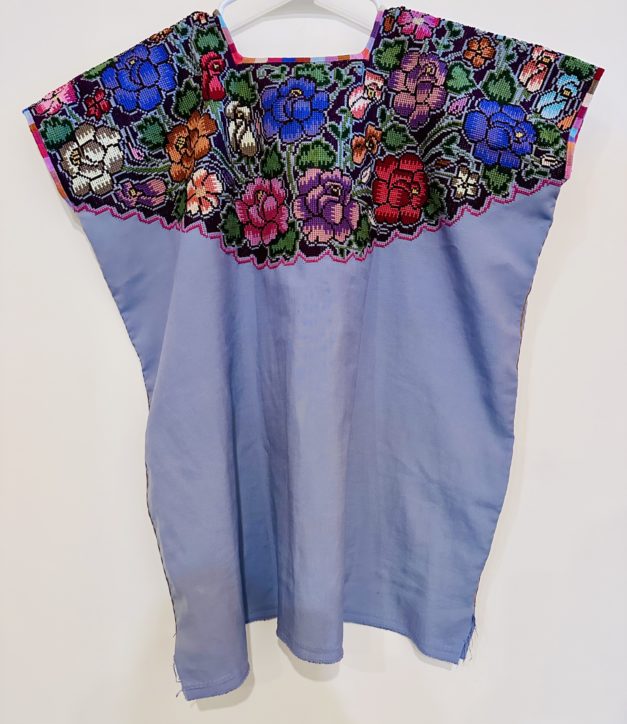Stay Safe at Home. Today, on Good Friday, I immediately think of the 1964 Simon & Garfunkel song, The Sounds of Silence, knowing that the traditional Semana Santa celebrations in Oaxaca and my town, Teotitlan del Valle, have been cancelled. For religion to be cancelled in Mexico, this is a very serious time!
On April 8, the Oaxaca Public Health Service (on Twitter: @SSO_GobOax) reported 37 positive cases of COVID-19, one death, and that 17 people who were diagnosed recuperated. These numbers are probably misleading since testing is not in place, just as the numbers are inaccurate in the USA, too. Reporting from remote villages is spotty at best. Comments on the Twitter feed note that numbers do not specify particular Oaxaca regions, like the Isthmus of Tehuantepec, for example. People are questioning.
The over-arching message is #STAYHOME.

Oaxaca celebrates Good Friday in silence. This is usually a big day, one of the biggest on the annual religious festival calendar. A traditional day of processing through the streets to re-enactment the Stations of the Cross journey of Jesus to Mount Calvary along the Via Dolorosa — the Way of Pain.

In Teotitlan del Valle, the community radio station broadcasts in both Spanish and Zapotec, the indigenous language of the village. It is the first language for most. Everyone is urged to stay home. All public celebrations related to Easter here have been canceled, starting with Lunes Santo (Holy Monday) and the church is closed. I replied to @TeotitlanDValle on Twitter that this was very good news, indeed.

I have family and dear friends here. I want them to be safe.

My friend Shannon published a post today, Silent Good Friday, with her collection of past photos of the celebration in the city. You might enjoy seeing these.

In these days, silence is a good thing.
Stay healthy, everyone.









































In Teotitlan del Valle, Oaxaca, Only Some Call It Carnaval
The Monday after Easter in Teotitlan del Valle, Oaxaca, Mexico, begins a five-day ritual practice about sustaining community. This is an ancient tradition that pre-dates the Spanish conquest of 1521. Some call it Carnaval (aka Mardi Gras) but it isn’t. It is called Baile de los Viejos or Dance of the Old Men, according to my interviews with local Zapotecs who know the oral history and culture because they live here and learned the ancient lore from their parents and grandparents.
Today and tomorrow in Teotitlan del Valle, the procession starts around 4 p.m. local time (5 p.m. in Oaxaca) followed by the Dance of the Old Men in the Municipio Plaza.
Carnaval is a pre-Lenten celebration that we know all too well from the festivities in New Orleans and Rio de Janeiro. It is rooted in a Roman celebration that extended throughout Europe during the middle ages.
Dance of the Old Men, the Viejitos, is a way for each of the five sections of the village of Teotitlan del Valle to give anonymous feedback to its elected officials, the president and the committee. It is a self-governing mechanism that gives voice to each person in the community that is transmitted by the masked actors who represent them. The mime is a ritual about giving feedback, paying honor and tribute to leaders and keeping communication open for honest dialog.
It’s true that the Dance has taken on a more carnival atmosphere, complete with food and drink and ice cream vendors. Children participate in the masked dancing and there is a frivolity in the air. But, this is a serious practice that ensures cohesion and lets the leaders know how well they are doing, if they are meeting expectations and where they may be falling short. Humility is rewarded here. Arrogance is not. Leaders are reminded that they are in their voluntary and elected roles at the behest of the people.
This is a self-governing model for Mexico’s Usos y Costumbres villages, many of which are in Oaxaca.
The generation of grandfathers and grandmothers want their children to know that this is not Carnaval. It is an important, ancient Zapotec practice about how to live together peacefully, with self-governance. Let’s do our part to help perpetuate the accurate story.
Like this:
4 Comments
Posted in Cultural Commentary, Photography, Teotitlan del Valle, Travel & Tourism
Tagged baile, carnaval, Carnival, Dance of the Old Men, Easter, Mexico, Oaxaca, usos y costumbres, viejitos, Zapotec